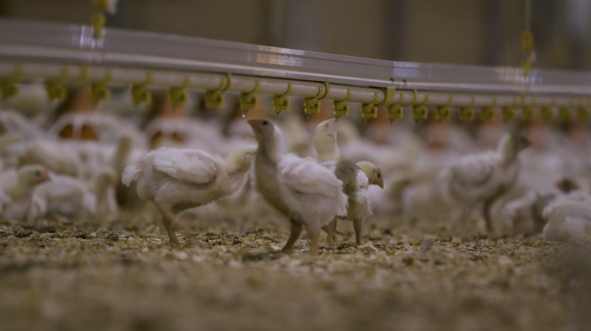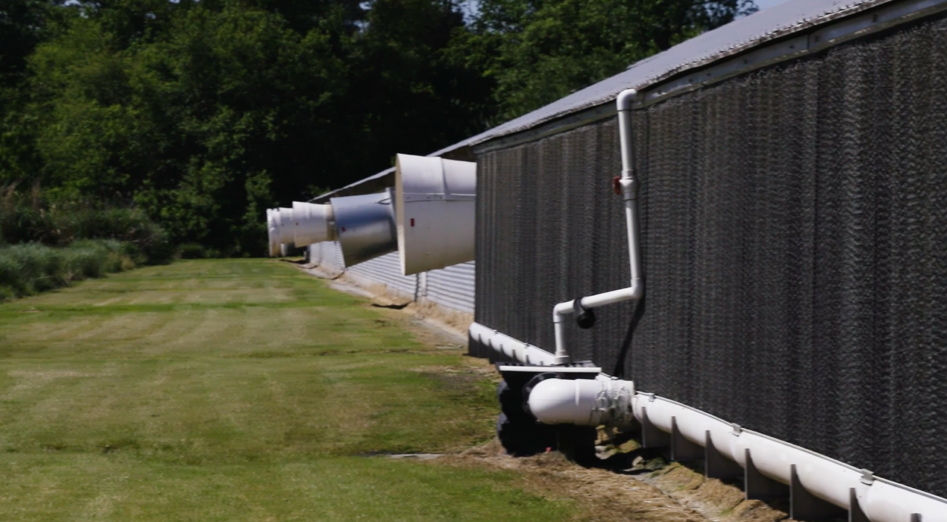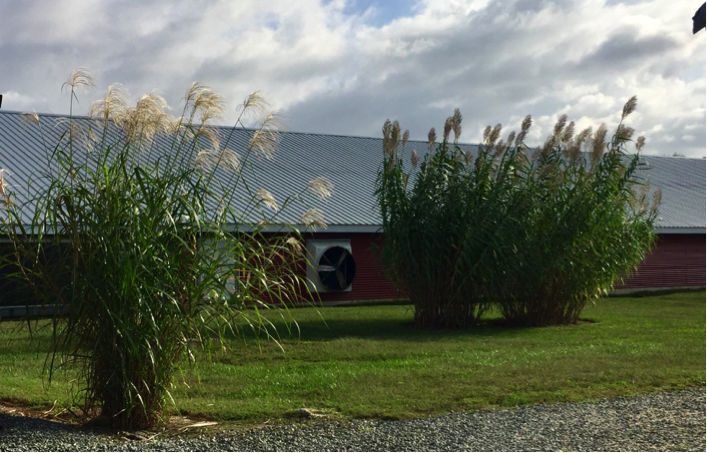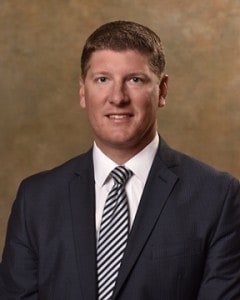How Chicken Farmers Reduce, Save and Recycle Water
Water conservation is a pivotal part of running a successful chicken farm. Farmers today monitor and record water usage to ensure their flock is receiving the essential amount of clean water. Wells and waterlines are sanitized on a regular basis. Farmers also implement other innovative practices to sustainably reduce, save and recycle water on their farms.

Michelle Chesnik, a chicken farmer from Maryland, uses waterline technology to get chickens the water they need while limiting waste or spillage. These waterlines, referred to as nipple systems, allow Michelle to be certain “the only water going into that house is going into the bird and not using unnecessary water.” With this technology, Michelle can easily check that there are no leaks in the water. Michelle says, “I’m proud that we put out a healthy bird for the consumer and at the same time save water.”

Evaporative cooling pads, another innovative technology used on many chicken farms, captures dew and rainwater. Natural or applied heat to the cooling pad releases this stored moisture and cools the chicken house on hot days. This process lowers farmers’ reliance on additional energy sources and can cut costs. “The cooling pads help to recycle water and save energy,” shares Janice Vickers. Terri Wolf-King also implements cooling pad technology on her farm.

“We monitor the water in the chicken house on a daily basis,” says Terry Baker. “We also installed a number of bogs and plant material to filter water before it leaves the farm.” These bogs and plant material serve as environmental buffers to guide, utilize, and retain rainwater.
Looking to learn more about environmental sustainability on the farm? Check out how Terry Baker practices environmental sustainability on his chicken farm.
Meet the author, Tom Super, Senior Vice President of Communications at the National Chicken Council.
Super brings 16 years of combined experience in strategic communications, public policy, politics and meat and poultry issues management to NCC’s senior management team. He is responsible for day-to-day media relations, media outreach, social media management and strategic communications planning to supplement the National Chicken Council’s legislative, regulatory and public affairs efforts.
Prior to his joining the National Chicken Council, Super spent three and a half years at the American Meat Institute, most recently as vice president of public affairs. He previously spent six years at Greener and Hook LLC, a Washington-based strategic communications consulting firm where his focus was on planning and executing communications strategies and delivering strategic communications and media relations counsel to corporations, trade associations, ad-hoc organizations, non-profits and political candidates at the local, state and federal levels. Super began his career in Washington, D.C. on Capitol Hill as a press assistant and legislative correspondent for U.S. Senator John W. Warner (R-Va.).
A graduate of Washington & Lee University, in Lexington, Va., Super earned his bachelor of arts degree in public policy.
